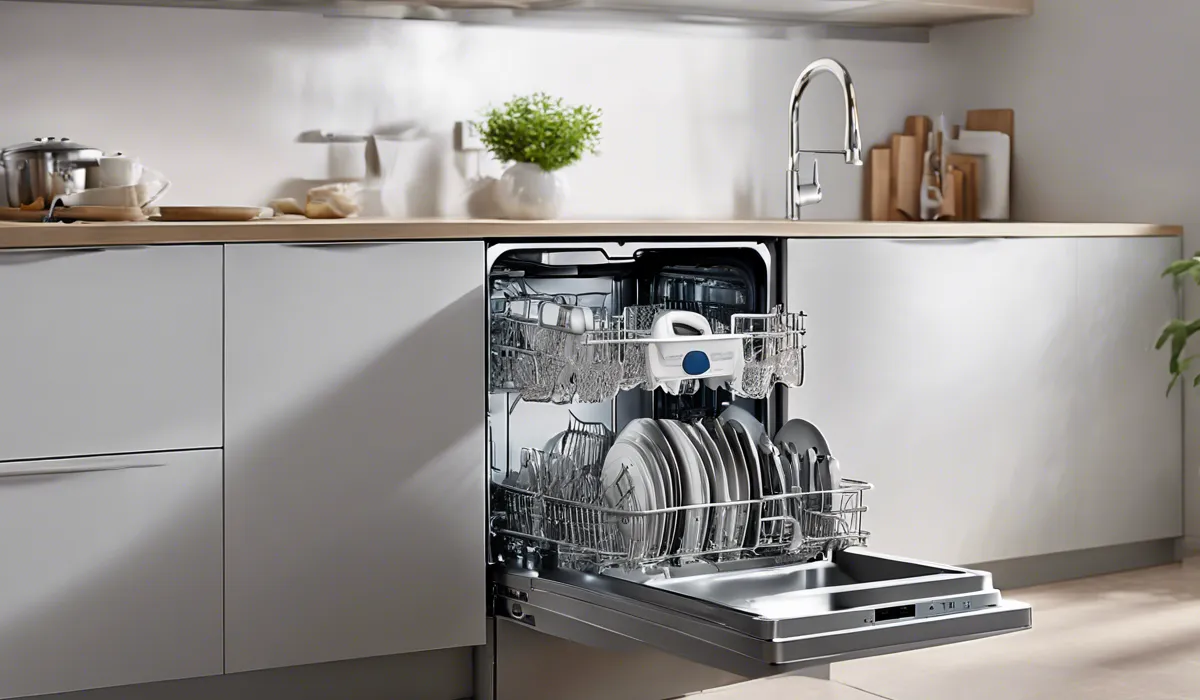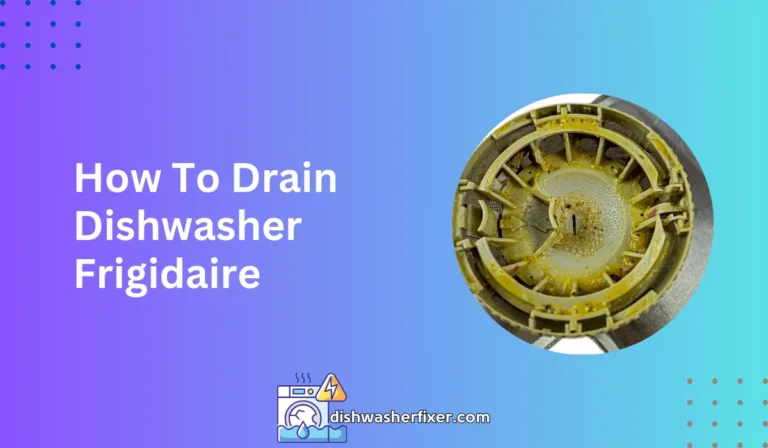Can You Have a Dishwasher with Well Water? Best Practices & Tips
Yes, you can have a dishwasher with well water. However, it’s important to ensure the water is softened, as hard well water can cause lime scale buildup and affect the dishwasher’s performance. Regular maintenance and filtration may be necessary.
Benefits of Using a Dishwasher with Well Water

Reduced Water Usage Compared to Hand Washing
One of the main benefits of using a dishwasher with well water is the reduction in water usage. Dishwashers are designed to be efficient and use less water than washing dishes by hand.
This means that for households with well water systems, dishwashers can help conserve the precious resource that is pumped from their own land.
By saving water, you are not only reducing your environmental footprint but also potentially lowering your energy costs associated with pumping and heating water.
Consistent Water Pressure and Temperature for Efficient Cleaning
Dishwashers connected to well water systems can benefit from consistent water pressure and temperature. This consistency is key to ensuring that dishes are cleaned thoroughly and efficiently.
A well-maintained pump and pressure tank will deliver the right amount of water at the correct temperature, making the dishwasher perform at its best. Maintaining these systems is crucial for optimal dishwasher operation.
Time-Saving Convenience for Households with Well Water Systems
Having a dishwasher is a significant time-saver for any household, but it is especially convenient for those with well water systems. It allows families to focus on other activities rather than spending time washing dishes by hand.
This convenience can be a game-changer in busy households, enabling more quality time spent together or allowing more time for personal pursuits.
Environmental Advantages of Using Less Water and Biodegradable Detergents
Using a dishwasher with well water not only conserves water but also encourages the use of environmentally friendly practices.
By choosing biodegradable detergents that are kind to the ecosystem, households can reduce their environmental impact. This is especially important for homes that rely on septic systems, as harsh chemicals can disrupt the natural breakdown of waste.
Considerations for Dishwasher Performance with Well Water

Hardness of Well Water and Its Impact on Detergent Effectiveness
Well water often contains minerals that can make it hard. This hardness can affect how detergents work, making them less effective at cleaning dishes.
Minerals in the water can react with the cleaning agents in detergents, reducing suds and leaving a residue on dishes. Understanding the hardness level of your well water is crucial for choosing the right detergents and ensuring clean dishes.
Potential for Mineral Buildup and Scale in the Dishwasher
The minerals in well water, particularly calcium and magnesium, can lead to buildup and scale inside the dishwasher.
Over time, this can clog the spray arms and filters, reducing efficiency and potentially causing damage. Regular maintenance is necessary to prevent these issues and keep your dishwasher running smoothly.
The Necessity for Water Softening Systems or Additives
To combat the effects of hard water, it may be necessary to install a water softening system or use additives.
Water softeners remove the minerals that cause hardness, improving the performance of your dishwasher. Additives can also be used to bind the minerals and help prevent scale buildup.
Regular Maintenance to Prevent Clogging and Damage to the Dishwasher
Regular maintenance is essential for any dishwasher, but it is especially important when using well water.
Checking and cleaning the filters, seals, and spray arms can prevent clogging and ensure that your dishwasher lasts for many years. Staying on top of maintenance can save you money on costly repairs or replacements in the long run.
Adjustments to Washing Cycles or Detergent Amounts Due to Water Quality
Due to variations in water quality, you might need to adjust the washing cycles or the amount of detergent you use.
Some dishwashers come with settings designed for hard water that adjust the cycle length and temperature to compensate for the lower efficiency of detergents.
You may also find that you need to use more detergent or a different type of detergent for the best results.
Solutions and Best Practices for Optimizing Dishwasher Use with Well Water

Installing a Whole-House or Point-of-Entry Water Softener
Installing a whole-house or point-of-entry water softener is one of the most effective solutions for dealing with hard well water.
A water softener will treat the water before it enters your home, ensuring that all your appliances, including your dishwasher, receive softened water. This can greatly enhance the performance of your dishwasher and extend its lifespan.
Using Rinse Aids and Water Conditioners Designed for Hard Water
Using rinse aids and water conditioners specifically designed for hard water can also improve dishwasher performance. These products help prevent spots and film from forming on dishes during the rinse cycle.
They also assist in the drying process by allowing water to run off dishes more easily, minimizing the spots that hard water can leave behind.
Selecting Dishwashers with Built-In Water Softeners or Hard Water Settings
When purchasing a new dishwasher, look for models with built-in water softeners or settings for hard water.
These dishwashers are designed to work in areas with hard water and can automatically adjust their cycles to deal with the challenges hard water presents. This feature can be particularly useful for homes with well water.
Routine Cleaning and Descaling of the Dishwasher to Maintain Performance
Routine cleaning and descaling of your dishwasher are crucial to prevent mineral buildup and maintain performance.
You can use vinegar or a commercial descaling product to clean the interior of your dishwasher. This should be done every few months or more frequently if you have very hard water.
Recommendations for Detergents and Cleaning Agents Suitable for Well Water Systems
Finally, using the right detergents and cleaning agents is vital for getting the best results from your dishwasher with well water.
Look for products labeled as being suitable for hard water. These detergents have different formulations that are more effective in mineral-rich water and can help prevent the issues associated with hard water.
FAQs About Dishwashers With Well Water
Can you install a dishwasher if you have well water?
Yes, you can install a dishwasher with well water, but it’s important to use softened water to prevent scale buildup.
Do you need to soften well water for a dishwasher?
Yes, softening well water is recommended for a dishwasher to prevent lime scale buildup and ensure optimal performance.
What maintenance is required for a dishwasher using well water?
Regular maintenance for a dishwasher on well water includes checking and cleaning filters, and potentially descaling the machine if hard water is an issue.
Can hard well water damage a dishwasher?
Hard well water can cause damage over time due to lime scale buildup, which can affect both performance and the longevity of the dishwasher.
Is a special dishwasher needed for well water?
No, a special dishwasher is not needed for well water, but a water softener and regular maintenance are important to keep it running well.
Final Thoughts
Having a dishwasher with well water is feasible, but it is crucial to soften the water to prevent lime scale deposits.
Ensuring the dishwasher’s longevity and efficiency requires diligent maintenance and possible water filtration to mitigate the effects of hard water.





